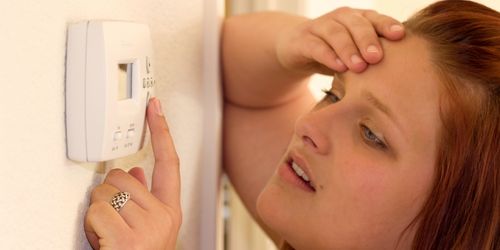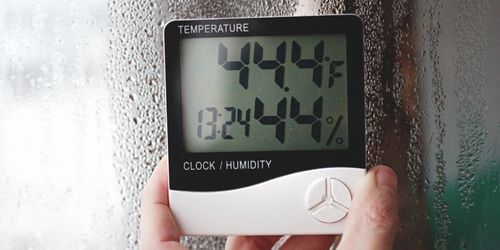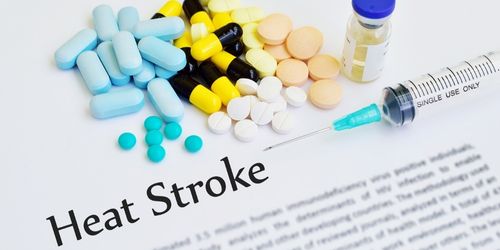Why does humidity make it feel hotter?
3 Key Takeaways:
🚀 High humidity levels make it difficult for sweat to evaporate, which is the body’s natural cooling mechanism. This is why humidity makes it feel hotter.
🚀 The ideal relative humidity level suggested by the National Weather Service is between 30% to 70%, with some people finding 40% to 60% the most comfortable.
🚀 A relative humidity of 0% can make it feel as cool as 20.5° C, while a relative humidity of 100% can make it feel like 26.6° C.
Have you noticed that you feel hotter on a humid day? If you haven’t noticed this, you must pay attention to the humid conditions of your environment the next hot day you come across. It is a struggle to push through when the high humidity levels of the room make you feel hotter than usual.
In this article, we will discuss why humidity makes it feel hotter than usual. A better understanding of the low humidity levels or high humidity levels will enable us to handle the humid conditions better. If you find yourself cranking up the air conditioner to add a cooling effect to the air temperature when the humidity makes you feel oppressively hot, you are not alone. Let us get started!
Why does humidity make hot days feel more miserable?

When it feels hotter on a regular warm summer day it is not uncommon. One will feel warmer than expected for the apparent temperature that exists only when the relative humidity level of the room is high. Whether it is dry heat, direct sunlight, or physical activity; when the human body temperature is raised the human body produces sweat to bring about the cooling effect and process. As the sweat evaporates from the body, the body cools down and the body temperature is reduced. Therefore, sweating and evaporative cooling are very essential mechanisms to cool the body temperature.
When the relative humidity level is high this process of sweating is affected and that is why humidity makes you feel warmer. When the humidity level is not balanced in relation to the air temperature you will either feel colder or feel hotter. You must remember that this does not have any effect on the direct sunlight, excess heat index of the area, or the cold day. High humidity makes one feel warmer and low humidity might make you feel colder than usual on a cold day.
The reason why maintenance of the relative humidity level using dehumidifiers of good quality is crucial is that it has an effect on things in the area and not just the body. High or low humidity levels make one feel hot or cold because of the amount of moisture content a humid environment holds. There is more moisture in the humid air and this damp air or more water vapor content in the damp air makes it difficult to support sweating. When the body produces sweat, the sweat evaporates and the body cools down. Since this sweat produced by the body does not evaporate or the evaporative cooling process is not taking place one feels hotter.
When it’s humid, how much hotter does it feel?

It is called relative humidity for a reason because it can change how one feels individually. The ideal relative humidity level suggested to be maintained by the National Weather Service is between 30% to 70%. Anything above 70% is unhealthy and considered very humid.
National Weather Service also reports that some homes or people find a relative humidity level of 40% to 60% the most comfortable for them. Anything higher in the relative humidity with its more water vapor makes it extremely difficult without being able to sweat to cool the body down.
It is possible that a relative humidity of 0% can make it feel as cool as 20.5° C, while a relative humidity of 100% can make it feel like 26.6° C. The change in how an individual feels is due to the lack of or excessive sweating. The body gets the cooling effect only as sweat evaporates.
In what way does the density of the air affect the process?
It takes time for an object to move in damp air where the moisture or water vapor content is more in comparison to dry air, where there are less of heavier molecules to navigate through.
What is the reason why some people are more affected by humidity and heat than others?

The effect of air temperature, dry air, dry heat index, relative humidity, or even evaporative cooling is relative. Each of these environmental conditions and their effect on physiological processes can impact each individual differently. There are some people who dissipate heat more efficiently than others. The reason can vary from person to person based on their human bodily mechanisms.
FAQ Section
1. Which country has the highest humidity?
The highest relative humidity scale among countries has been varying from time to time. It can be said that Saudi Arabia consistently holds the record for having high levels of humidity globally.
2. In which city in the United States is the humidity the worst?
The coastal city of San Franciso is famous for its uncomfortably high relative humidity levels.
3. Are rains responsible for humidity?
Yes, in most cases high humidity makes a sharp leap when it rains. This is because rain increases the relative humidity due to evaporation. Since the air is constantly drawing in moisture while it rains, you will notice a rise in humidity either after or even during continual showers.
4. What is the effect of a bowl of water on the humidity of a room?
An open bowl of water placed in the room will carry out a slow process of evaporation thereby adding moisture to the air. If there is a low level of humidity, this method can be used to increase the humidity of the place. If not, this is just going to make the humidity worse.
5. What is better for your health, dry or humid air?
It is suggested there must be a balance between the two. Air with the right level of moisture content is good for the sinuses. Whereas air that is extremely dry can contribute to further drying of the eyes, nasal passage, and throat. Also, air that has a high level of moisture content becomes the best breeding ground for mold, mildew, and other allergens. Maintaining the right balance using the right equipment is recommended.
Wrapping Up
With this, we conclude the article here. We trust the article helped you understand why you feel hot on a humid day. Share with us your experiences on how you handle a humid day effectively.

About The Author
Olivia — a self-confessed air quality addict — is a home climate enthusiast, fresh air advocate, and someone with deep personal experience and knowledge about mold extermination. Her work was mentioned in countless notable humidity publications. Previously she was an editor at Mold Remediation.